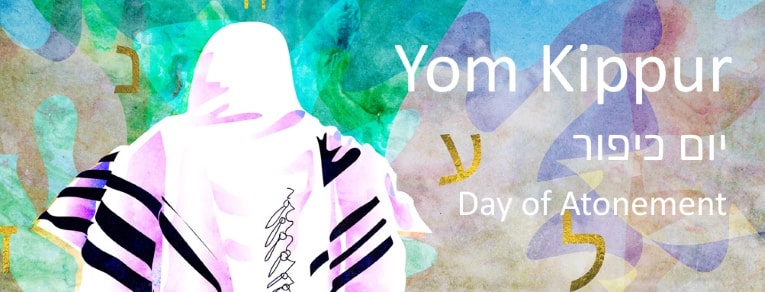 Rabbi David Etengoff Dedicated to the sacred memories of my mother, Miriam Tovah bat Aharon Hakohen, father-in-law, Levi ben Yitzhak, sister-in-law, Ruchama Rivka Sondra bat Yechiel, sister, Shulamit bat Menachem, Chaim Mordechai Hakohen ben Natan Yitzchak, Yehonatan Binyamin ben Mordechai Meir Halevi, Avraham Yechezkel ben Yaakov Halevy, Shayna Yehudit bat Avraham Manes and Rivka, the refuah shlaimah of Devorah bat Chana, Yitzhak Akiva ben Malka, Shoshana Elka bat Etel Dina and Chaya Mindel bat Leah Basha, and the safety of our brothers and sisters in Israel and around the world. We have been on a spiritual journey since the beginning of Chodesh Elul. This month helps us to focus upon what is false and what is real, in order that we may pursue matters of ultimate spiritual import. In an almost palpable sense, it prepares us for the great and awe-filled days of Rosh Hashanah, when we once again crown the King of the Universe and are inspired to redouble our teshuvah (repentance) efforts in anticipation of Yom HaKippurim. Before we encounter and rededicate ourselves to Hashem on Yom HaKippurim, however, we must encounter ourselves. In short, we must become accountants of the spirit. In very general terms, the role of an accountant is to help us “make resource allocation decisions.” (Wikipedia) By extension, when we act as accountants of the spirit, our individual and collective task is to determine the best way to allocate and use our innermost religious resources. This can only be achieved by engaging in cheshbon hanefesh, the ultimate act of Torah accountancy. We are indeed fortunate that one of the greatest masters of Jewish Ethical literature (Mussar), the Italian thinker Rabbi Moshe Chaim Luzzato (1707-1746, known as the “Mesilat Yesharim” after the title of his most famous work), helps us understand the constitutive elements of the Torah introspection process. He notes that an individual must: “... observe all of his actions and watch over all of his ways.” It is only when we subject the totality of our actions to scrupulous scrutiny that we will free ourselves from “... a bad habit or a bad trait, let alone a sin or a crime.” This accounting must be both daily and exact “... in the manner of the great merchants who constantly evaluate all of their undertakings so that they [their business ventures] do not miscarry.” Moreover, contemplative analysis must be done in a highly disciplined manner and with thoroughgoing consistency: “He should set aside definite times and hours for this weighing so that it is not a fortuitous matter, but one that is conducted with the greatest regularity; for it yields rich returns.” What are the “rich returns” that will accrue as a result of this depth-level self-examination? Here, too, Rav Luzzato enlightens us in his inimitable fashion: “After engaging in such a reflection he will come to consider whether or not his deeds travel along the proper path. For in doing so it will certainly be easy for him to cleanse himself of all evil and to correct his ways.” (Mesilat Yesharim, translation, Rabbi Shraga Simmons, pages 31 and 37) Yom ha-Kippurim is the preeminent time to return to the path of serving Hashem and fulfilling His mitzvot. Based upon the insights gained through cheshbon hanefesh, we can engage in authentic teshuvah and then be worthy to receive the beneficent gift of kapparah (atonement) from our Creator. With Hashem’s help, may we have the discernment and wisdom to undertake the cheshbon hanefesh process and engage in authentic teshuvah, so we may become reconciled with our Creator. Then, may we be zocheh (merit) to receive the great gift of kapparah through the Almighty’s chane, v’chesed, v’rachamim (favor, kindness and mercy). As Yermiyahu the prophet declared so long ago, “Return us to You, O L-rd, so that we may return! Renew our days as of old.” (Megillat Eichah 5:21, translation, with my emendations, The Judaica Press Complete Tanach) V’chane yihi ratzon. Shabbat Shalom, G’mar chatimah tovah and Tizku l’shanim rabot. Past drashot may be found at my blog-website: http://reparashathashavuah.org They may also be found on http://www.yutorah.org/ using the search criteria of Etengoff and the parasha’s name. The email list, b’chasdei Hashem, has expanded to hundreds of people. I am always happy to add more members to the list. If you have family or friends you would like to have added, please do not hesitate to contact me via email mailto:[email protected]. *** My audio shiurim for Women on the topics of Tefilah and Megillat Esther may be found at: http://tinyurl.com/8hsdpyd *** I have posted 164 of Rabbi Soloveitchik’s English language audio shiurim (MP3 format) spanning the years 1958-1984. Please click on the highlighted link.
0 Comments
Leave a Reply. |
Details
Archives
July 2024
AuthorTalmid of Rabbi Soloveitchik zatzal Categories |
- Blog: Rabbi David Etengoff: Parashat HaShavuah
- Sefer Bereishit 5784&5785
- Sefer Shemot 5784&5785
- Sefer Vayikra 5784&5785
- Sefer Bamidbar 5784 &5785
- Sefer Bereishit 5782&5783
- Sefer Shemot 5782&5783
- Sefer Vayikra 5782&5783
- Sefer Bamidbar 5782&5783
- Sefer Devarim 5782&5783
- Sefer Bereishit 5780& 5781
- Sefer Shemot 5780&5781
- Sefer Vayikra 5780&5781
- Sefer Bamidbar 578&5781
- Sefer Devarim 578&5781
- Sefer Bereishit 5778&5779
- Sefer Shemot 5778&5779
- Sefer Vayikra 5778&5779
- Sefer Bamidbar 5778&5779
- Sefer Devarim 5778&5779
- Sefer Bereishit 5776&5777
- Sefer Bereishit 5774&5775
- Sefer Bereishit 5772&5773
- Sefer Bereishit 5771&5770
- Sefer Shemot 5776&5777
- Sefer Shemot 5774&5775
- Sefer Shemot 5772&5773
- Sefer Shemot 5771&5770
- Sefer Vayikra 5776&5777
- Sefer Vayikra 5774&5775
- Sefer Vayikra 5772&5773
- Sefer Vayikra 5771&5770
- Sefer Bamidbar 5776&5777
- Sefer Bamidbar 5774&5775
- Sefer Bamidbar 5772&5773
- Sefer Bamidbar 5771&5770
- Sefer Devarim 5776&5777
- Sefer Devarim 5774&5775
- Sefer Devarim 5772&5773
- Sefer Devarim 5771&5770
 RSS Feed
RSS Feed
